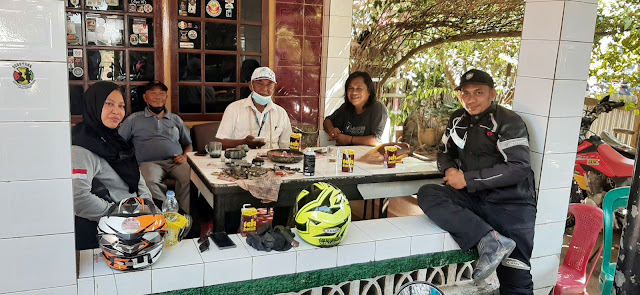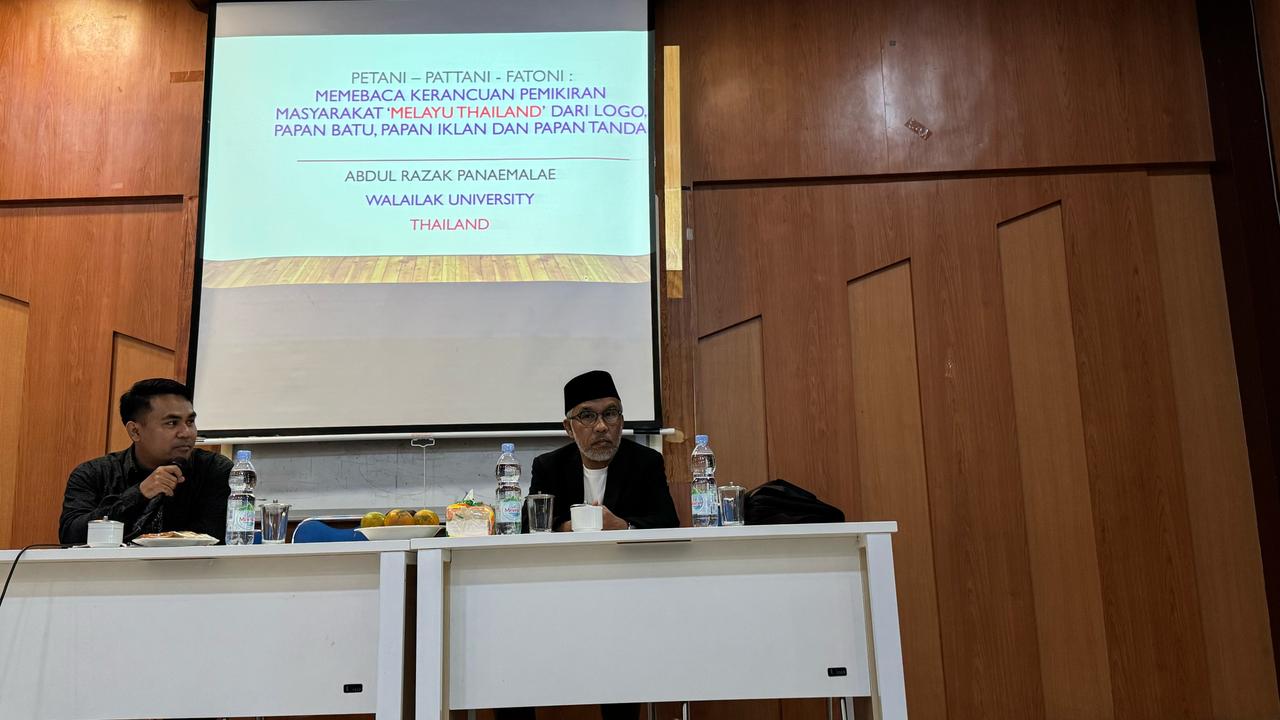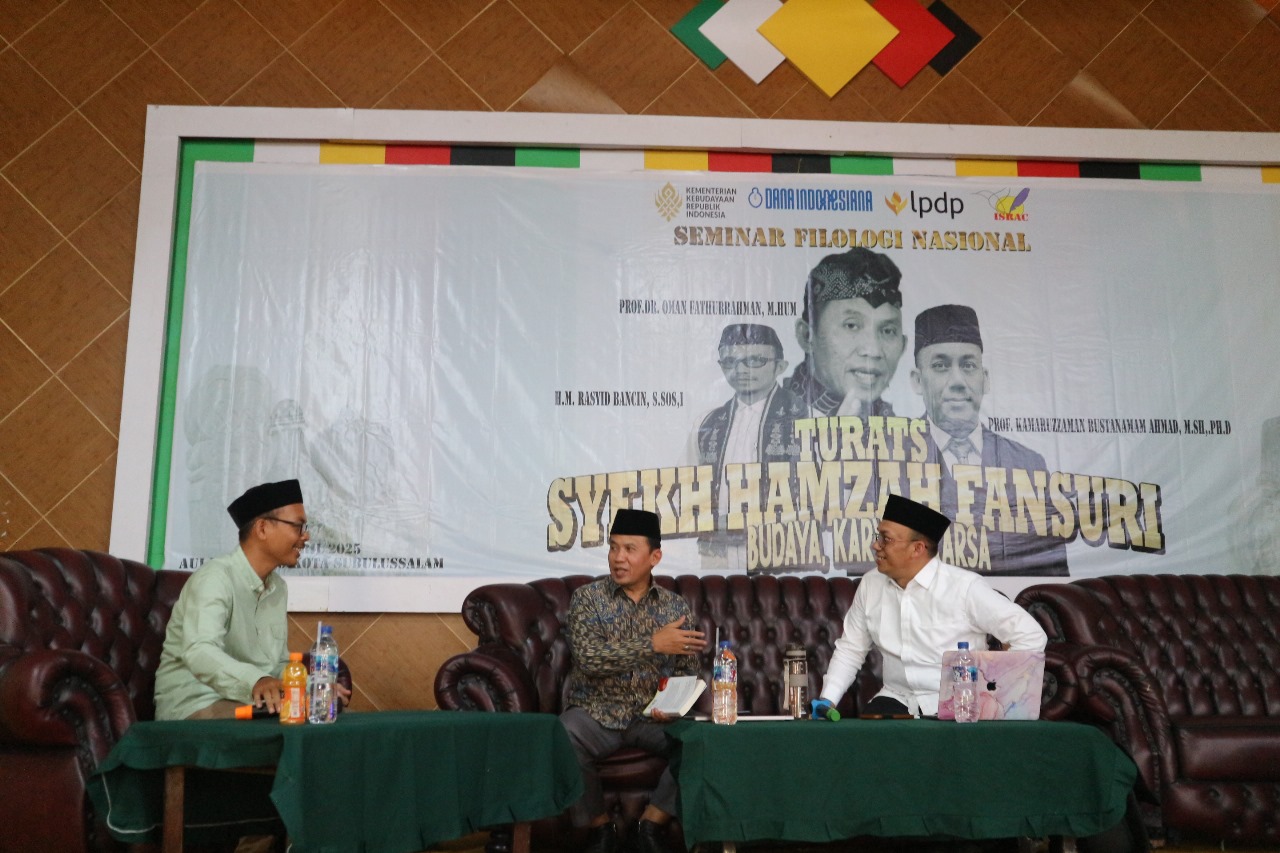During the Touring Indonesia Harmoni trip, from Aceh to Papua, one of the most frequently encountered are Indonesians who like to wander in other provinces or abroad. Indonesia can be said to be the country’s stage for scavengers of sustenance from various regions. In other words, this motherland is a witness to how humans move from one island to another. The stories of immigrants who hunt for sustenance are not always happy at the end. Sometimes it is full of suffering. Then there is happiness at the end. Or, at first happy, but in the end in unhappiness.
In this essay, of course, there will be many narrations or stories from various people we met during the Touring Indonesia Harmoni trip.
The stories of these immigrants will indeed reveal how the life of the Indonesian people. A TNI man had to get married in Asmat. Then his wife worked in Boven Digoel. He had to fly to Boven Digoel for his honeymoon. A policeman who has lived in Merauke for decades feels that he is a Papuan, even though his skin color is not like a Papuan. A contractor in Ternate who hails from Makassar has business and political networks in Ternate and Halmahera Island. A businessman from Sulawesi became the head of a mining company in Kalimantan. A worker at a palm oil company in Munting, Merauke has lived in a housing camp for an oil palm company for a dozen years. Two itinerant traders rent a motorbike, living nomadic lives in Papua, only to sell household appliances from door to door.
Our family, who recently married a young man from Enrekang, South Sulawesi, currently lives in Bulungan, Tanjung Selor, North Kalimantan. Political life in several provinces in Kalimantan is also undeniably controlled by migrants from Sulawesi who have lived in Kalimantan for a long time. These nomads can speak their local language and where they currently live. The Madurese family we met in Merauke has a highly respected son Merauke. He has also married a local woman. His daily life shows more as a Papuan. Almost all of the workers are from Papua.
The Minang people we met have also spread to almost all corners of the archipelago. Every province or city we passed, there was always a Minang stall. In Malinau, the Minang language dialect is still heard among the Warung employees. The Warung Wong Solo network we met in Kalimantan and Sulawesi always met employees from Java. In the kitchen, jokes in Javanese are often heard. The workers on the Sunlia ship we boarded docked from Weda to Sorong, but the crew was mainly from Manado. So that the booming music on the ships, when we pass them, is just like being in the city of Manado.
Meeting with staff or ASN also shows how the archipelago’s diaspora is throughout Indonesia. One of the North Kalimantan FKPT, who lent us his house for a short stay in Makassar when we were about to leave for Merauke, is a former student who studied in Yogyakarta, now an ASN in Bulungan. A TNI AU soldier in Merauke who came from Aceh Besar married a Javanese woman, lives in the city of Merauke. He said it was a bit difficult to leave the city of Merauke. He is already living happily with his family, although he misses the Acehnese language. On the island of Java, the migration of people to migrate cannot be ruled out. The culture of going home on religious holidays always colors land, sea, and air vehicles.
That is a brief description of the portrait of overseas migrants in the archipelago, as long as we met them during Touring Indonesia Harmoni.
This ethnographic story will discuss how this wandering tradition has become a cultural glue in the archipelago. They parted not to meet again while wandering but separated to look at new life opportunities, where one day, they will also return to their respective areas. These stories can be an oral history for anyone who wants to explore the history of nomads in the archipelago.
The Ciremai docked at Makassar Port. We got off the ship at 1 am. While waiting for Nyak Ver to be removed from the ship’s hull, suddenly, a man approached us. He said he was waiting for his car to be delivered from Sorong by the ship. He seemed enthusiastic about familiarizing himself with us. At first, I thought he was also a passenger who had just gotten off the Ciremai Ship. He is a businessman who wants his Kijang car to be sent from Sorong to Makassar.
In Eastern Indonesia, Makassar is the gateway for anyone who wants to send their goods to Eastern Indonesia. We ship Nyak Ver (our bike) to
Merauke via the port in Makassar. Likewise with airplanes. Almost all planes that will fly to Eastern Indonesia will stop at Makassar. The cities of Makassar and Maros (because the airport is in Maros) are hubs that will continue to reach Eastern Indonesia, especially Papua. This man is the son of a businessman from Makassar and has lived in Sorong for decades. His father is a retired TNI who has been given plots of land in Sorong since the 1970s. For him, the story of life in Sorong will never be forgotten because modernization in the city of Sorong is not so fast. Snakes and mosquitoes, for this man, are things that must be avoided if you live in Sorong.
Sorong used to be different from Sorong now, he said. Nevertheless, first, mentally must be ready. Every time you return to Makassar,
it can take weeks because the ship will stop at several places. Sometimes, during the fasting month, the passengers will be very crowded. Even to stand was very difficult. This is because the nomads from Sulawesi and Java willreturn home. Passenger ships will help cruise to several Makassar, Surabaya, and Tanjung Priok. As soon as he saw our ship that night, he immediately said that fortunately, this ship belongs to Pelni because if it is privately owned, of course, they will lose money because of the lack of passengers. When we boarded this ship, there were not many passengers. However, this man said it was not too crowded. I chimed in that this might be due to the Covid-19 pandemic.
Then he told about his family’s success in Sorong. Now his business is managed by his brother. Until now, he has not been strong enough to
return to Sorong because the memories make him sad when he takes a plane to Sorong. Weird. That is the impression I got. However, he
shared his memories of living in Sorong with his family. The difficulties of living in Sorong made him unable to see the city of Sorong. He even burst into tears when he shared his memories with his parents in Sorong. He was already on the plane one day, but his mind struggled to get off the plane until he canceled his departure to Sorong. However, he was very enthusiastic about telling all about his family life in Sorong. I can understand the condition of his family’s struggle in Sorong. Currently, some business industries in Sorong are dominated by Makassarese and Javanese.
When I was in Merauke, I passed by a vast building. The building is a storage warehouse for necessities sent from Java to Merauke, a building
belonging to a successful Javanese businessman who was initially a coolie or laborer in Merauke, to be precise, at the port. However, because of his access and network, he built his business empire in Merauke until now.






